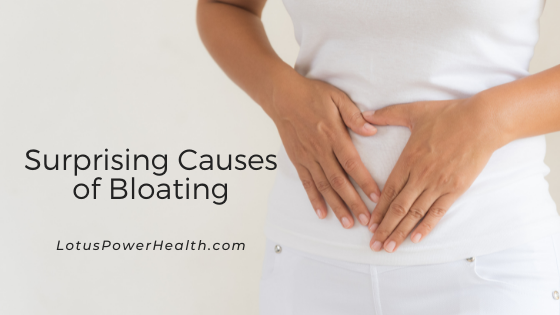Here are some additional causes of bloating you might want to be aware of.
Surprising Causes of Bloating
What and How You Eat
Both what and how you eat can make a difference in how bloated you feel throughout the day. If you use a straw when you are drinking water or other beverages, you probably swallow more air, giving you extra gas and bloat.
What you are eating can also make a big difference in how bloated you get. For example, some people find that after they consume many carbs, like eating a bagel or pasta, they get more bloated. Others get bloated when they eat foods that irritate a gut condition they have, like IBS or gastritis.
By being more aware of what foods bother you, you can reduce bloating considerably.
Digestive Disorders
Some digestive disorders also cause more bloating, even without changing your diet, including IBS, Crohn’s, and celiac disease. As I mentioned, these gut conditions can lead to bloating based on what you eat, but that’s not all. Some conditions might cause bloating after eating anything, regardless of your trigger foods.
If you are concerned about your bloating and think it might be from a condition like IBS or an ulcer, then visiting your doctor is a good idea. They can run tests and figure out if it is just from what you are eating or medications or other treatments you need to look into.
Lactose Intolerance
If you get stomach aches or diarrhoea after consuming dairy products, you might be intolerant to lactose, the sugar found in dairy products. The easiest way to know if you are lactose intolerant is to see how your body reacts after consuming dairy. You might find that you have nausea or cramping after eating ice cream or that a glass of milk gives you diarrhoea.
Compare how you feel after dairy to how you feel with no dairy or plant-based milk, and notice the differences. If you can eat a bowl of cereal with almond milk and have no bloating or other adverse reactions, then you probably have lactose intolerance.

